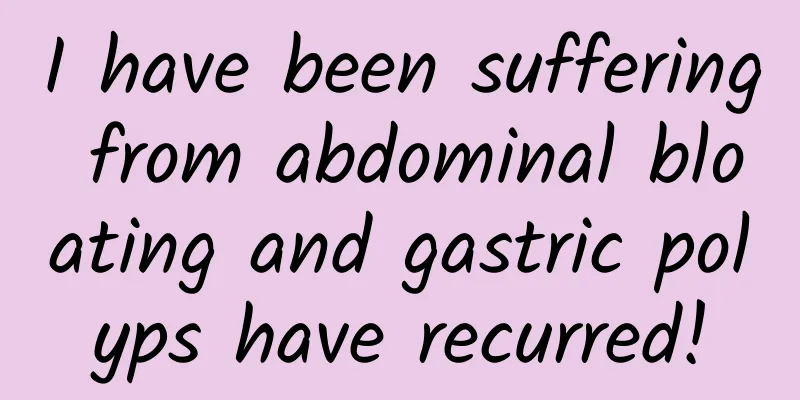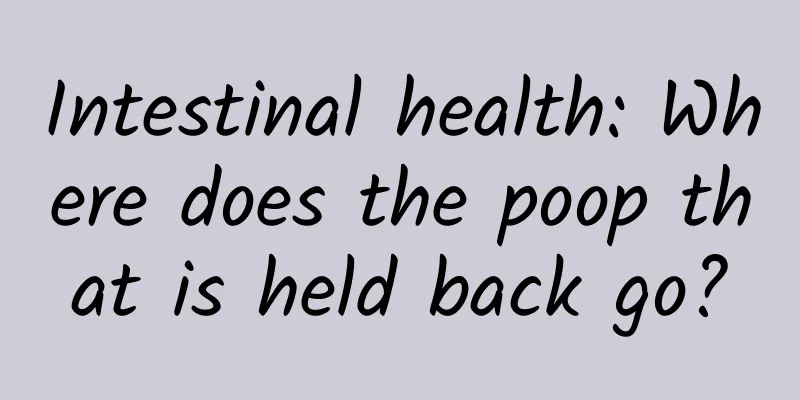I have been suffering from abdominal bloating and gastric polyps have recurred!

|
"I have been suffering from abdominal distension and discomfort. Gastric polyps have recurred!" #Gastric polyps knowledge Gastric polyps are pedunculated or pedunculated lesions of the gastric mucosal epithelium. They are generally benign, and the risk of cancer depends on the type of polyp. The prevalence of gastric polyps is 1.0%-6.4%. Most patients are women, and the incidence rate is also on the rise. Gastric polyps may not have particularly obvious symptoms at first. A few patients may experience upper abdominal pain, discomfort, abdominal distension, nausea, vomiting, anorexia, etc. When the polyps are larger, symptoms such as distension, acid reflux, hiccups, and indigestion may occur. Gastric polyps are sometimes larger in size. If the gastric polyps are located at the cardia and pylorus, accompanied by erosion and bleeding, abdominal pain, diarrhea, black stools, anemia, etc. may sometimes occur. The treatment of gastric polyps generally includes general treatment, drug treatment and surgical treatment. It is recommended to detect and treat it early to avoid delaying the disease. Public Cases A 48-year-old female patient presented with intermittent abdominal distension, dull pain under the xiphoid process, and heartburn. 1. Discovery of Disease Three years ago, I had persistent abdominal distension, which worsened after meals, and a dull pain under the xiphoid process. So I had a barium meal examination at the hospital, which indicated antral gastritis and gastric ulcer. I have been taking oral medications. Later, I had a gastroscopy and found multiple gastric polyps. I underwent polypectomy under endoscopy, and recovered well after the operation. But recently, I still feel bloated, so I came to the hospital for a follow-up visit. The doctor basically knew my medical history, and the recent symptoms were similar to the previous ones. Based on years of experience, the doctor intuitively felt that my symptoms were very similar to the symptoms before the gastric polypectomy, and was worried about the recurrence of the lesions in the stomach. The doctor then conducted a preliminary interview and physical examination, and in order to further understand the cause of the recent abdominal distension, he admitted the patient to the hospital for "chronic gastritis." 2. Treatment Process For further diagnosis and treatment, the doctor gave me a detailed examination. First, a comprehensive and detailed physical examination was performed, and no particularly obvious abnormalities were found. Laboratory tests showed that the carbohydrate antigen CA-724 exceeded the standard by 10.46U/mL, and the normal level is no more than 6.7U/mL. The doctor said that this indicator is related to the risk of gastric cancer. The other laboratory test indicators showed no obvious abnormalities. Imaging examinations and cardiac ultrasound examinations showed no obvious abnormalities. After consultation with the department, the doctor arranged a gastroenteroscopy. Fasting and cleansing enema were arranged before the examination. Under the gastroenteroscopy, multiple gastric polyps, chronic atrophic gastritis, and Helicobacter pylori (negative) were seen. Multiple gastric polyps were removed directly under the gastroenteroscopy. No obvious abnormalities were found in the colonoscopy. The gastroenteroscopy lasted 37 minutes. Two hours after the gastroenteroscopy, some liquid food could be eaten. After drug treatment, I did not feel abdominal distension when I was discharged from the hospital, and the dull pain under the xiphoid process and heartburn were relieved. 3. Notes 1. After being discharged from the hospital, you need to pay attention to the balance of diet, eat more light food, and avoid eating hard, spicy and irritating food. 2. Pay attention to your rest rhythm, maintain a good mood, relieve anxiety and stress, and do moderate aerobic exercise. 3. You need to continue taking oral medication when you are discharged from the hospital. 4. Follow-up examination in the outpatient clinic 2 weeks after discharge. After polypectomy, attention should be paid to observe whether there is abdominal pain and bowel movements. 4. Personal insights Gastric polyps are usually found through gastroscopy, and most of the time there are no symptoms. If gastric polyps are infected with Helicobacter pylori, accompanied by chronic gastritis and gastric ulcer, Helicobacter pylori must be eliminated first, and anti-inflammatory treatment can be effective. Only when Helicobacter pylori is completely eliminated can there be a good and healthy ecological environment in the stomach, which is conducive to the recovery of ulcer lesions or inflammation. At the same time, I suggest that you should also pay attention to abdominal discomfort in your daily life, such as abdominal distension, diarrhea, the presence or absence of black stools, etc. The recurrence rate of gastric polyps is relatively high, and the value of regular gastroscopy is very great. Patients with gastric polyps should reduce the intake of raw, cold, rough, spicy, greasy foods, and reduce the stimulation of tobacco and alcohol to avoid aggravating the symptoms of gastric polyps. |
<<: What should I do about astigmatism after correcting myopia through surgery?
Recommend
In the third week of 2025, the iPhone 16 series occupied the top two positions in China's mobile phone sales list
Recently, the Chinese mobile phone market sales r...
Can I eat Sophora japonica during menstruation?
When we were young, on the way home from school, ...
How long will it take for menstruation to come after medical abortion?
Medical abortion is a type of abortion that can b...
What happens if there is a lump on the upper chest?
Breast health is a very important matter for wome...
Can breast cysts generally be cured?
Breast cysts are a type of breast disease. Many p...
Pubic hair worm
Pubic lice are mainly caused by the presence of s...
What is the trend of this round of epidemic? How to get the "booster shot"? Official response →
Recently, the Joint Prevention and Control Mechan...
What should we do if we cannot find the cause of a “heart disease”? It may be that there is a problem with the heart nerves.
I have come across several similar cases, which a...
What do you need to bring when you have a baby?
Having a baby is the happiest thing for a family,...
Dark brown discharge during menstruation
During menstruation, a woman's vagina will di...
What is the quickest way to reduce swelling of the labia majora?
When women have swollen labia, it is usually acco...
Difficulty falling asleep, frequent dreams and waking up easily? These foods can help you sleep well
What should I do if I have difficulty falling asl...
The best way to delay menstruation
The annual college entrance examination is here a...
Where to draw blood for non-invasive DNA
Every woman must experience a major event in her ...









